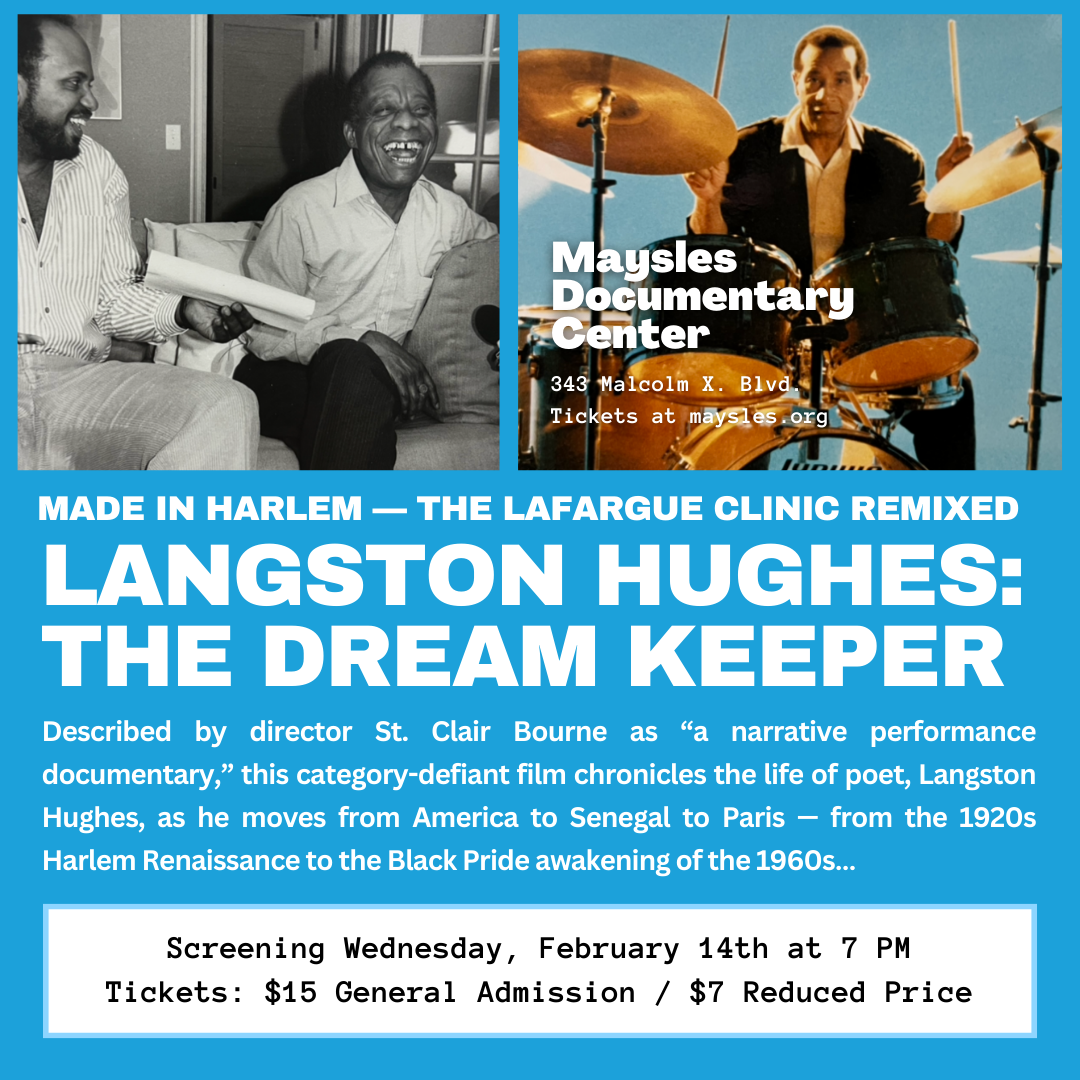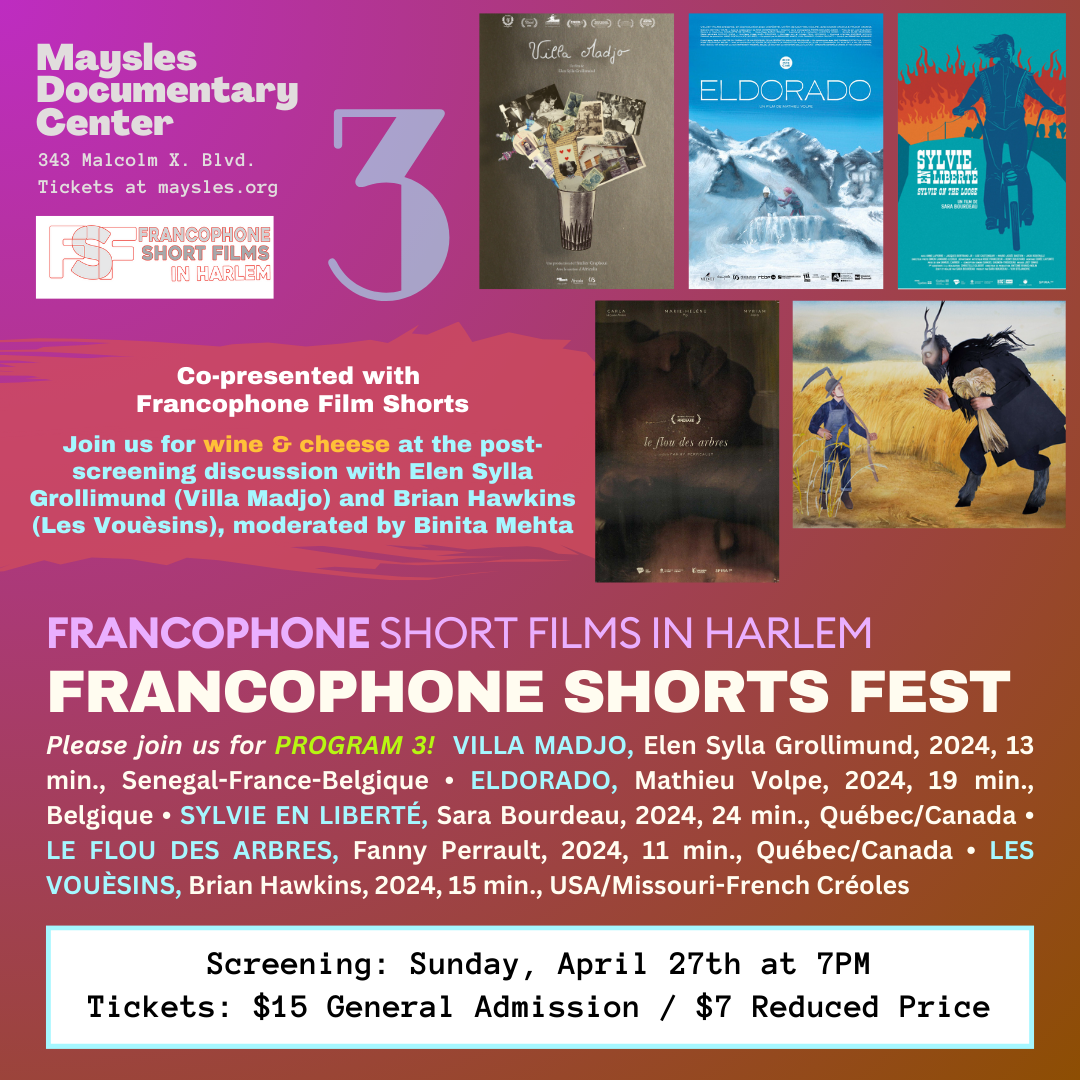IN CINEMA
MADE IN HARLEM – THE LAFARGUE CLINIC REMIXED
LANGSTON HUGHES: THE DREAM KEEPER
Wednesday, February 14th at 7PM
Tickets: $15 General Admission / $7 Reduced Price
St. Clair Bourne, 1987, 60 min.
Film print courtesy of Chamba Media and Film Desk.
Described by director St. Clair Bourne as “a narrative performance documentary,” this category-defiant film chronicles the life of poet, Langston Hughes, as he moves from America to Senegal to Paris — from the 1920s Harlem Renaissance to the Black Pride awakening of the 1960s.
Made In Harlem – The LaFargue Clinic Remixed
Founded by Reverend Sheldon Hale Bishop (Pastor of St. Philip’s Episcopal Church that housed the clinic in Harlem) with co-founders Richard Wright (author of “Native Son” and former Harlem bureau chief for the Communist Party’s Daily Worker) and Fredric Wertham (German psychoanalyst who emigrated to the United States after the rise of the Nazi Party), The Lafargue Clinic was the first of its kind in Harlem: a pay-as-you-wish anti-racist mental health clinic, staffed largely by volunteers. Operating 1946-1958 out of the basement of St. Philip’s Episcopal Church, The Lafargue Clinic pioneered a form of social medicine that linked patients' medical needs with the struggle for housing and economic justice. MADE IN HARLEM – THE LAFARGUE CLINIC REMIXED is a series of films, talks, and seminars on the legacy of this groundbreaking Harlem institution and its impact today on radical healthcare organizing, mutual aid, and collective wellbeing.
Curated by Kazembe Balagun
“Richard Wright, Fredric Wertham and Reverend Hale Bishop embarked on a bold experiment for the personal, social and economic liberation of African Americans in the face of organized abandonment,” says Kazembe Balagun, series curator. “I hope these films act as a reusable history for social workers, activists and public policy makers, especially now when there is so much debate over mental health services, the homeless and policing in our country.”
“Though it was brief in existence, the Lafargue Clinic also engendered the creativity of writers like Ralph Ellison who would pen the essay “Harlem is No Where” on the clinic as well as Gordon Parks who took undertook an unpublished photo series along with Ellison. Wright would later focus on psychoanalytic themes in his later writings influenced by Fredric Wertham.”












